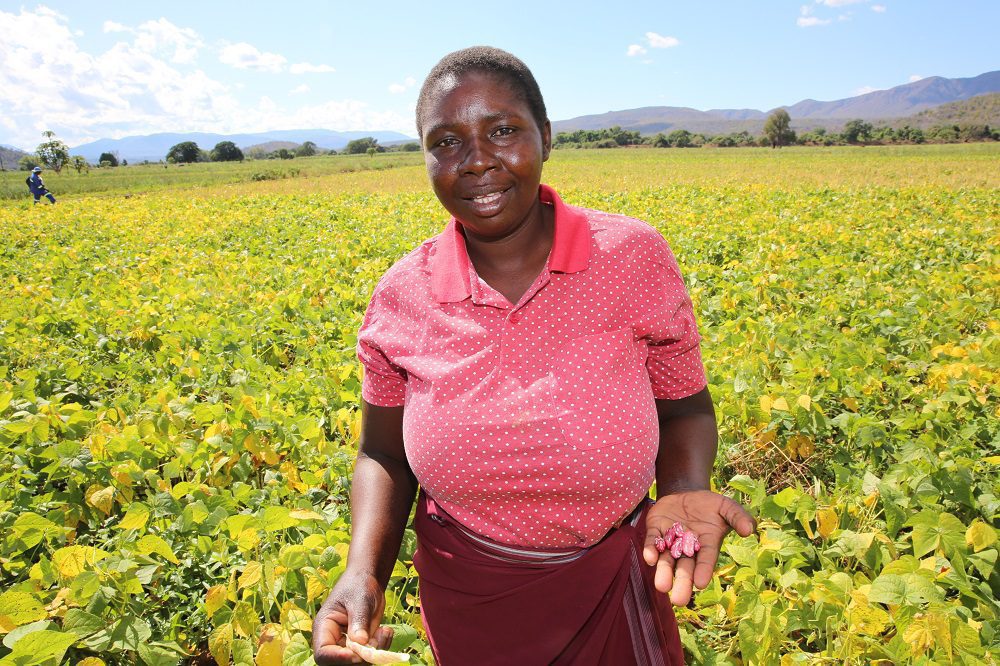“Life is getting better'” – Spotlight on Bwerudza irrigation scheme, Chipinge

“When Cyclone Idai hit in March 2019, and destroyed our irrigation scheme we lost hope for a better future, as our major source of income had been destroyed. In addition my family house was destroyed. Without ZIRP support, we would not have recovered, our lives have changed” narrates 39-year-old widow Lucy Chikarata, with a wide smile on her face.
Since 2012 when her husband died, the 0.4ha family plot at Bwerudza irrigation scheme in Chipinge was their main source of income. Proceeds from the irrigation scheme were used to pay for school fees for her three children and purchase of basic commodities for the family.
“Three years after Cyclone Idai our life is getting better. I managed to construct a modern two bedroomed house. Two of my children are attending a boarding school in Marondera and the eldest is on attachment for her catering course.”
Chikarata’s story is a result of a notable increase in productivity in agricultural sites in the area. “ZIRP interventions in the irrigation schemes have resulted in a significant increase in yield in most crops grown by farmers. For example maize increased yields increased from 0.5 to 5t/ha, sugar beans yield increased from 0.9 to 1.5t/ha and onions from 20 to 50t/ha. Farmers are also showing some improved sense of ownership, which is a step in the right direction for sustainability,” asserted Brian Nhlema, FAO-ZIRP project coordinator.
In addition, “income and health of farmers has greatly improved. Some farmers were failing to send their children to school but now they are able to do so comfortably, some have built better houses, some bought wheel barrows, bicycles and others even cars. GBV cases have reduced because people are busy and food secure. In addition, the crops give us carbohydrates, protein and nutrition wise a lot has improved,” said Bwerudza Irrigation Scheme Chairperson, Michael Pindeni.
Sustainable agriculture is one among the factors on the frontlines to eliminate climate change effects in developing countries like Zimbabwe. “FAO knows that sustainability and profitability can be found together and that rural farmers are among the drivers of a new green economy,” said Patrice Talla, Country Representative for Zimbabwe at a recent tour of Gudyanga and Bwerudza irrigation schemes in Manicaland. This was the thrust of ZIRP in engaging specialist UN agencies to collaborate for the delivery ofthe project. “Engaging with the private sector is also a high priority for FAO,” added Patrice.
Farmers at Bwerudza irrigation Scheme have been linked to formal markets including Mukushi Seeds and Seedco contracts, GMB and the scheme engages with other private sector players like Burkarif, and Blue Eye who are off takers of the sugar bean commodity.
“These contracts will ensure that our farming enterprises will continue even after the ZIRP project. We have built strong relations with these companies as seen by the growth in hectarage this year. In addition, we are looking forward to other partnerships as we plan to expand into other cash crops,” said the Chairperson of Bwerudza irrigation scheme.
